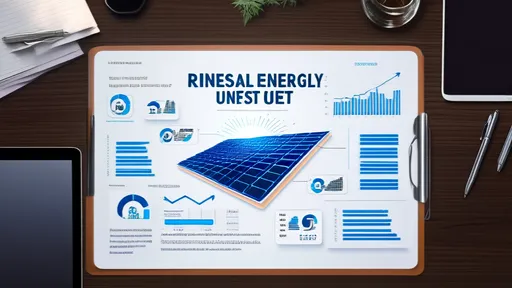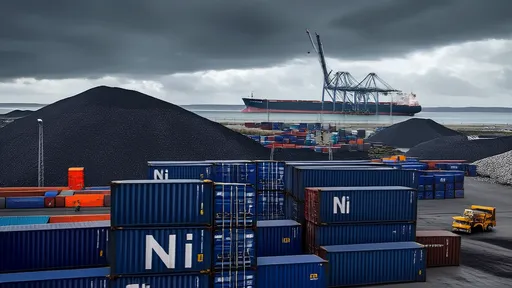The global housing market, once a bastion of stability and growth, is now facing one of its most significant downturns in recent memory. Across Europe and North America, property prices have plummeted by an average of 15%, sending shockwaves through economies and leaving homeowners, investors, and policymakers scrambling to respond. This sharp decline marks the bursting of what many analysts had long warned was an unsustainable real estate bubble, inflated by years of cheap credit, speculative buying, and artificially low interest rates.
The roots of this crisis stretch back over a decade. In the aftermath of the 2008 financial crash, central banks in developed nations slashed interest rates to historic lows and pumped trillions into their economies through quantitative easing. While these measures succeeded in staving off depression, they also created a perfect storm for real estate speculation. Investors flush with cheap capital poured money into property markets, driving prices to dizzying heights that bore little relation to local incomes or economic fundamentals.
Now, the chickens have come home to roost. The combination of soaring inflation, rapidly rising interest rates, and economic uncertainty has shattered the illusion of ever-rising home values. In cities like Toronto, where prices had doubled in the past ten years, the correction has been particularly brutal. Similar stories are playing out across major metropolitan areas from Berlin to San Francisco, where pandemic-era buying frenzies have given way to plunging demand and a glut of unsold inventory.
What makes this downturn particularly alarming is its synchronous nature across multiple continents. Unlike previous regional housing crashes, the current slump appears nearly universal among advanced economies. Data from national statistics offices show year-over-year price declines ranging from 12% in parts of the United Kingdom to over 18% in certain Scandinavian markets. Even traditionally stable markets like Germany and France haven't been spared, with prices in major cities falling at rates not seen since the early 1990s.
The human cost of this correction is becoming increasingly apparent. Millions of homeowners who bought at the market's peak now find themselves underwater on their mortgages, owing more than their properties are worth. First-time buyers who stretched their finances to enter the market during the pandemic now face the prospect of negative equity and potential foreclosure if economic conditions worsen. Meanwhile, renters - who might be expected to benefit from lower prices - are instead facing higher costs as landlords pass along their increased borrowing expenses.
Construction industries across the West are bracing for severe contractions. With demand evaporating and financing costs soaring, developers are shelving projects en masse. In the United States alone, housing starts have fallen by nearly 30% from their 2021 peak. The ripple effects through related industries - from home improvement to appliance manufacturing - threaten to turn the housing slump into a broader economic downturn. Already, several major European construction firms have announced significant layoffs, with more expected to follow as the crisis deepens.
Policymakers find themselves in a difficult bind. After years of warning about housing affordability crises, they now face the opposite problem - a collapse in property values that could destabilize entire banking systems. Memories of the 2008 subprime mortgage crisis loom large, though most analysts agree the current situation differs in important ways. Today's borrowers generally have stronger credit profiles, and lending standards in most markets never reached the reckless heights seen in the mid-2000s. Nevertheless, the sheer scale of price declines across so many markets simultaneously presents unprecedented challenges.
The commercial real estate sector may face even steeper challenges than residential markets. The pandemic-driven shift to remote work has left office buildings across major cities partially empty, with vacancy rates in some downtown districts exceeding 30%. As leases come up for renewal, many companies are opting to downsize their physical footprints, leaving property owners struggling to fill space. The values of office buildings in major metropolitan areas have already fallen by 20-25%, with some analysts predicting further declines as hybrid work arrangements become permanent for many knowledge workers.
Regional variations in the downturn reveal interesting patterns. Southern European markets like Spain and Italy, which never fully recovered from their last housing crashes, are seeing relatively modest declines compared to their northern neighbors. Meanwhile, countries like Canada and New Zealand that experienced particularly extreme price surges during the pandemic are now suffering the sharpest corrections. These differences reflect varying degrees of overvaluation, along with distinct national policies regarding housing finance and taxation.
Looking ahead, most economists predict a prolonged period of stagnation rather than a quick rebound. Even if central banks begin cutting interest rates in response to economic weakness, the era of ultra-cheap money that fueled the housing boom appears to be over for good. Demographic trends in many Western nations - aging populations, slowing immigration - suggest weaker long-term demand. And with memories of the current crash fresh in buyers' minds, the speculative fervor that drove prices upward may take a generation to return, if it ever does.
For now, the great global housing correction continues unabated, rewriting the financial futures of millions and challenging long-held assumptions about real estate as a safe, appreciating asset. As governments and central banks grapple with the consequences, one thing has become painfully clear: the laws of economic gravity apply even to something as fundamental as the roof over one's head. The full social and political ramifications of this reckoning may take years to fully manifest, but the world emerging from this crisis will likely view property ownership and investment very differently than it did at the bubble's peak.
The World Trade Organization (WTO) has issued a stark warning about the growing fragmentation of global trade, cautioning that a breakdown in international cooperation could slash global GDP by up to 5%. The alarm comes amid rising geopolitical tensions, trade barriers, and a shift toward protectionist policies that threaten to unravel decades of economic integration.
The global food price index has shown a steady decline over the past several months, offering temporary relief to consumers worldwide. However, this positive trend masks deeper structural vulnerabilities in the world's food systems that continue to threaten long-term food security. While lower prices at grocery stores and markets provide welcome breathing room for household budgets, agricultural experts warn that climate change remains an existential threat to stable food production.
The once-explosive growth of cross-border e-commerce is showing signs of cooling, prompting major platforms to shift their focus toward emerging markets, particularly Southeast Asia. After years of double-digit expansion, global online retail sales are facing headwinds from economic uncertainty, supply chain disruptions, and shifting consumer behaviors. This slowdown has forced industry players to rethink their strategies, with many turning their attention to the relatively untapped potential of Southeast Asian nations.
The race for quantum supremacy has entered a new phase as tech giants IBM and Google accelerate their efforts to commercialize quantum computing. What was once a theoretical pursuit confined to research labs is now a high-stakes battle for market dominance, with both companies vying to establish themselves as the leader in this transformative technology. The competition is heating up as breakthroughs occur at an unprecedented pace, leaving investors, governments, and industries scrambling to understand the implications.
The global housing market, once a bastion of stability and growth, is now facing one of its most significant downturns in recent memory. Across Europe and North America, property prices have plummeted by an average of 15%, sending shockwaves through economies and leaving homeowners, investors, and policymakers scrambling to respond. This sharp decline marks the bursting of what many analysts had long warned was an unsustainable real estate bubble, inflated by years of cheap credit, speculative buying, and artificially low interest rates.
The global luxury market is experiencing an unexpected chill, and nowhere is this shift more pronounced than in China. As international luxury houses report softening demand from their most crucial demographic, a quiet revolution is taking place among Chinese consumers who are increasingly turning to homegrown high-end brands. This tectonic shift in consumer behavior is reshaping the luxury landscape in ways that few industry analysts predicted just five years ago.
The global semiconductor shortage that has plagued industries from automotive to consumer electronics since 2020 is finally showing signs of easing. However, beneath this broader recovery lies a paradoxical imbalance: while advanced chip production has largely stabilized, mature-node semiconductors remain stubbornly constrained. This divergence reveals fundamental shifts in the semiconductor ecosystem that may reshape supply chains for years to come.
The global energy landscape is undergoing a seismic shift as investments in renewable energy have surpassed those in fossil fuels for the first time in history. This milestone marks a turning point in the world’s transition toward cleaner energy sources, with solar power emerging as the dominant force driving this growth. The trend reflects not only changing market dynamics but also a broader recognition of the urgent need to combat climate change.
The biotech sector is witnessing an unprecedented surge in investor interest, with gene-editing companies leading the charge. Over the past year, venture capital firms and institutional investors have poured record-breaking sums into startups specializing in CRISPR and other gene-editing technologies. The momentum shows no signs of slowing down, as breakthroughs in therapeutic applications and agricultural innovations continue to capture both scientific and financial attention.
The global artificial intelligence (AI) investment landscape is undergoing a seismic shift, with projections indicating that total spending on AI technologies will surpass $1.5 trillion by 2025. Among the key players driving this unprecedented growth, China stands out as a dominant force, accounting for an estimated 35% of the worldwide AI investment. This surge reflects not only the rapid adoption of AI across industries but also the strategic prioritization of AI development by governments and corporations alike.
The global shipping industry is facing unprecedented turbulence as freight rates skyrocket and the Red Sea crisis exacerbates supply chain disruptions. What began as regional geopolitical tensions has spiraled into a worldwide logistical nightmare, squeezing businesses already struggling with post-pandemic recovery. The ripple effects are being felt across industries, from automotive manufacturers waiting on critical components to retailers staring at half-empty shelves during peak shopping seasons.
The UK's post-Brexit economic landscape continues to face significant headwinds, with recent data revealing a record-high trade deficit and persistent contraction in the manufacturing sector. These developments have reignited debates about the long-term consequences of leaving the European Union, as British businesses struggle to adapt to new trade barriers and supply chain disruptions.
The African Continental Free Trade Area (AfCFTA) has officially commenced operations, marking a historic milestone in the continent's economic integration. With the ambitious goal of doubling intra-African trade by 2035, the initiative is poised to reshape the economic landscape of Africa, fostering greater collaboration among its 54 member states. The AfCFTA represents the world's largest free trade area by the number of participating countries, covering a market of over 1.3 billion people and a combined GDP of approximately $3.4 trillion.
The Philippines and the United States have recently inked a pivotal agreement aimed at strengthening cooperation in the critical minerals sector, a move widely interpreted as an effort to reduce reliance on China. This strategic partnership underscores the growing geopolitical significance of securing supply chains for minerals essential to modern technology, renewable energy, and defense systems. As tensions between Washington and Beijing continue to escalate, the deal signals a broader shift in global trade dynamics, with nations increasingly seeking alternatives to Chinese dominance in the critical minerals market.
The global electric vehicle (EV) industry is facing a significant cost surge as Indonesia, the world’s largest nickel producer, enforces a strict ban on nickel ore exports. The policy, initially introduced in 2020 to promote domestic processing, has now begun to exert intense pressure on battery manufacturers scrambling to secure alternative sources. With nickel being a critical component in lithium-ion batteries, the restriction has disrupted supply chains and driven up production costs for EV makers worldwide.














